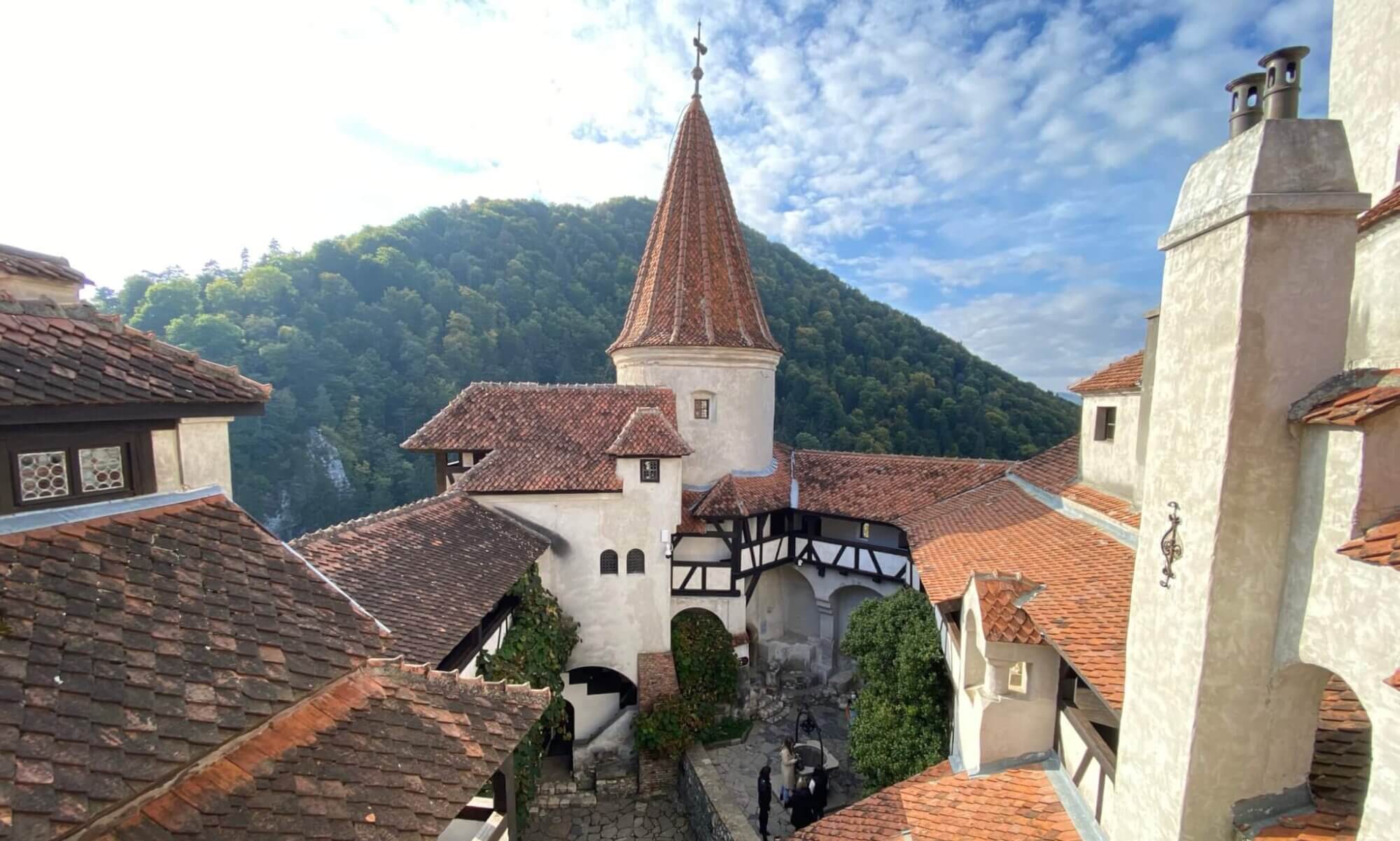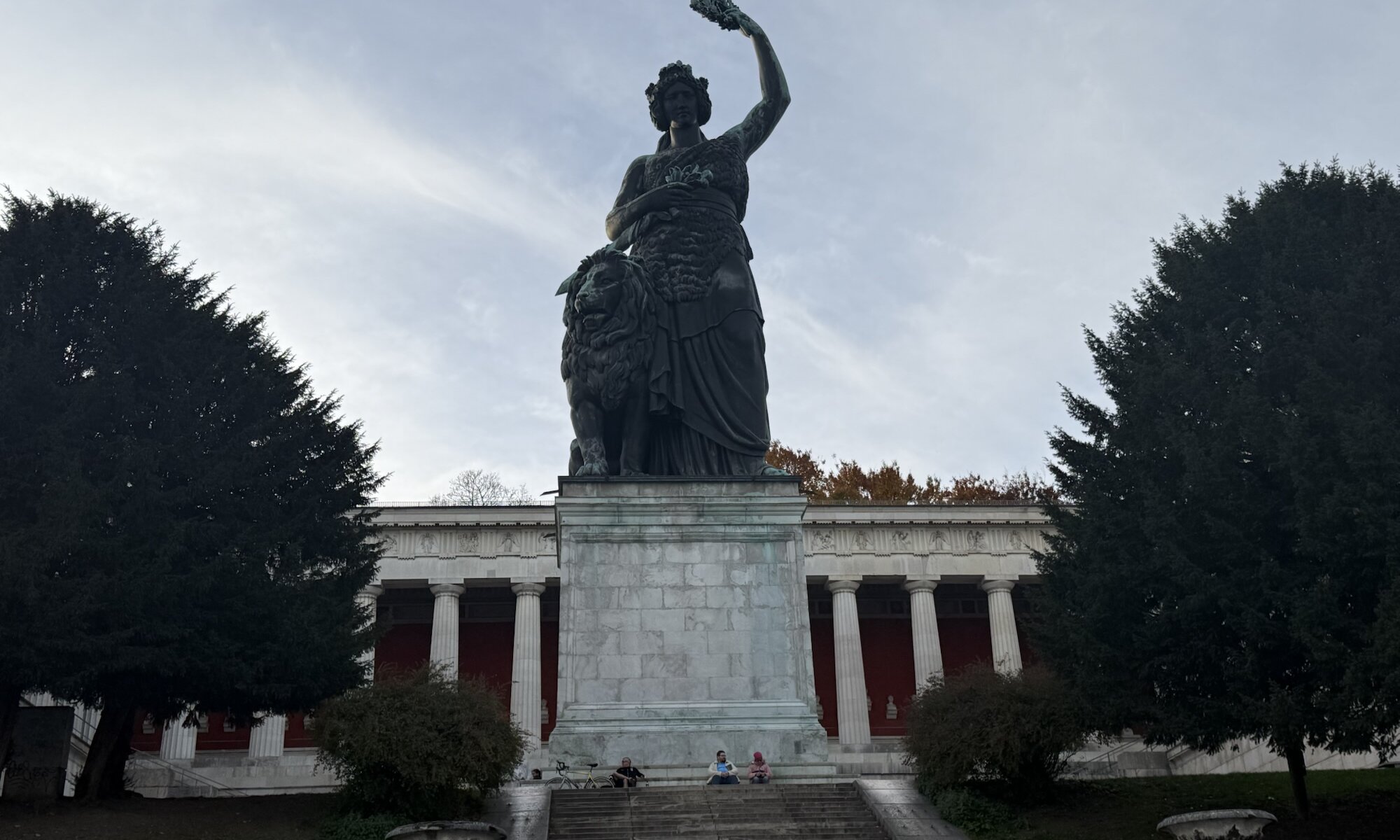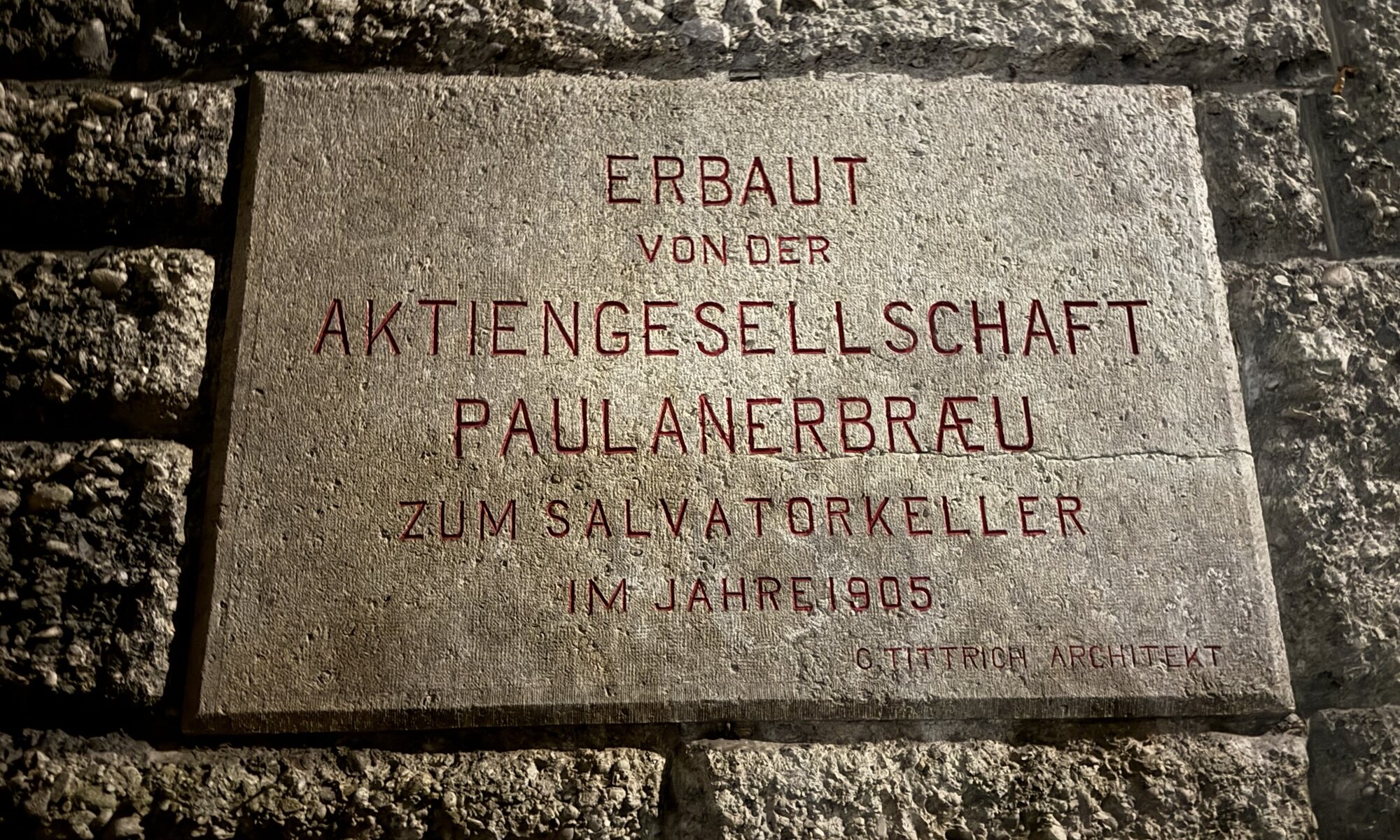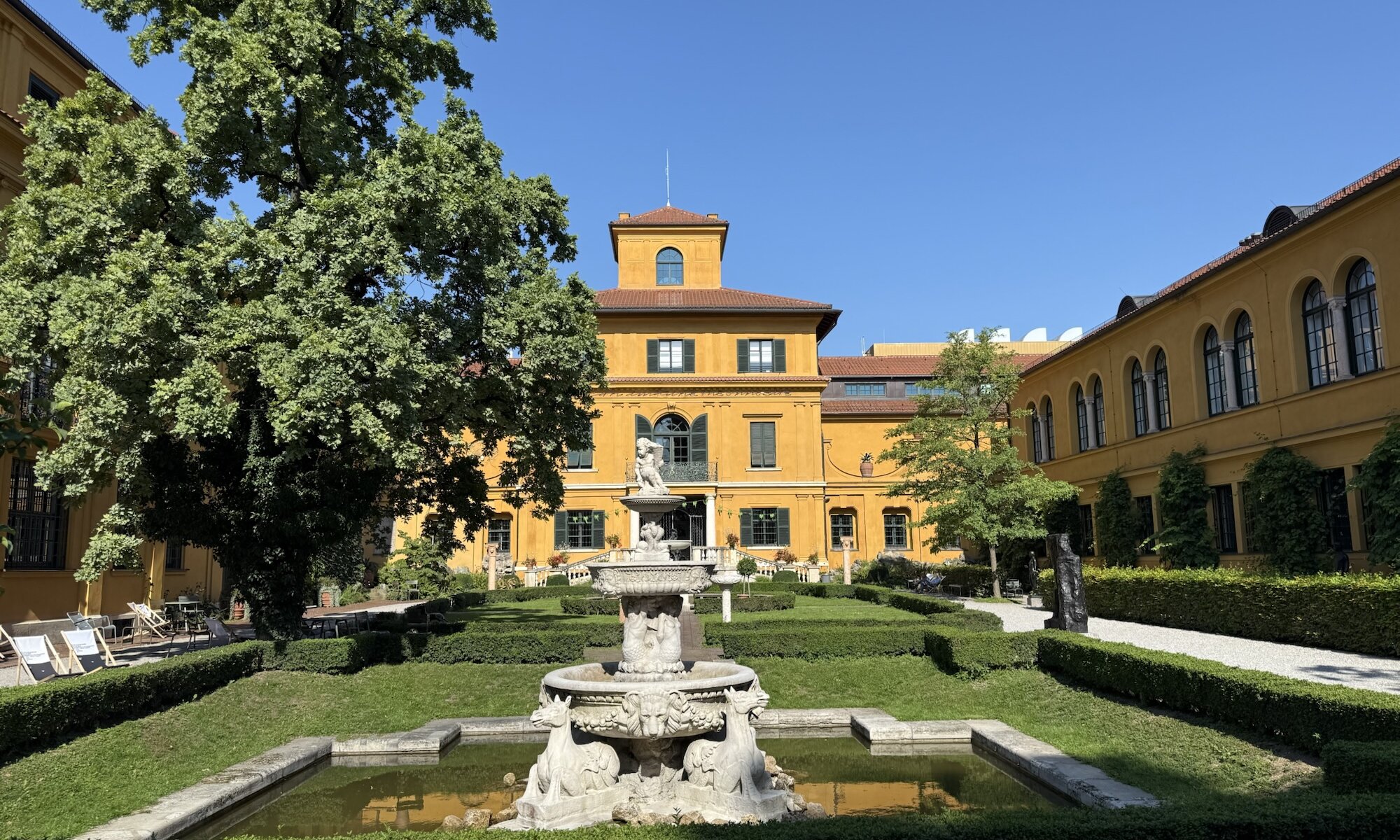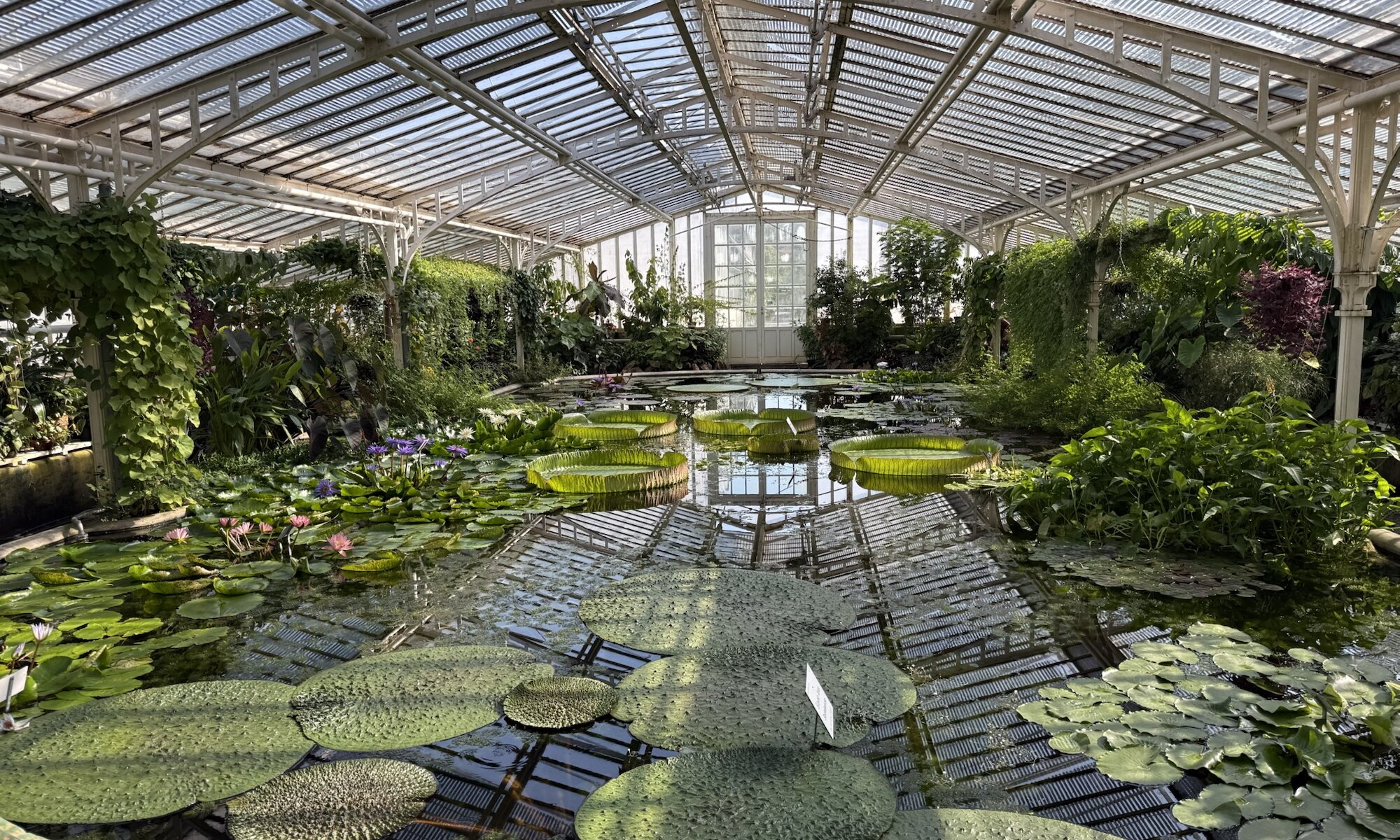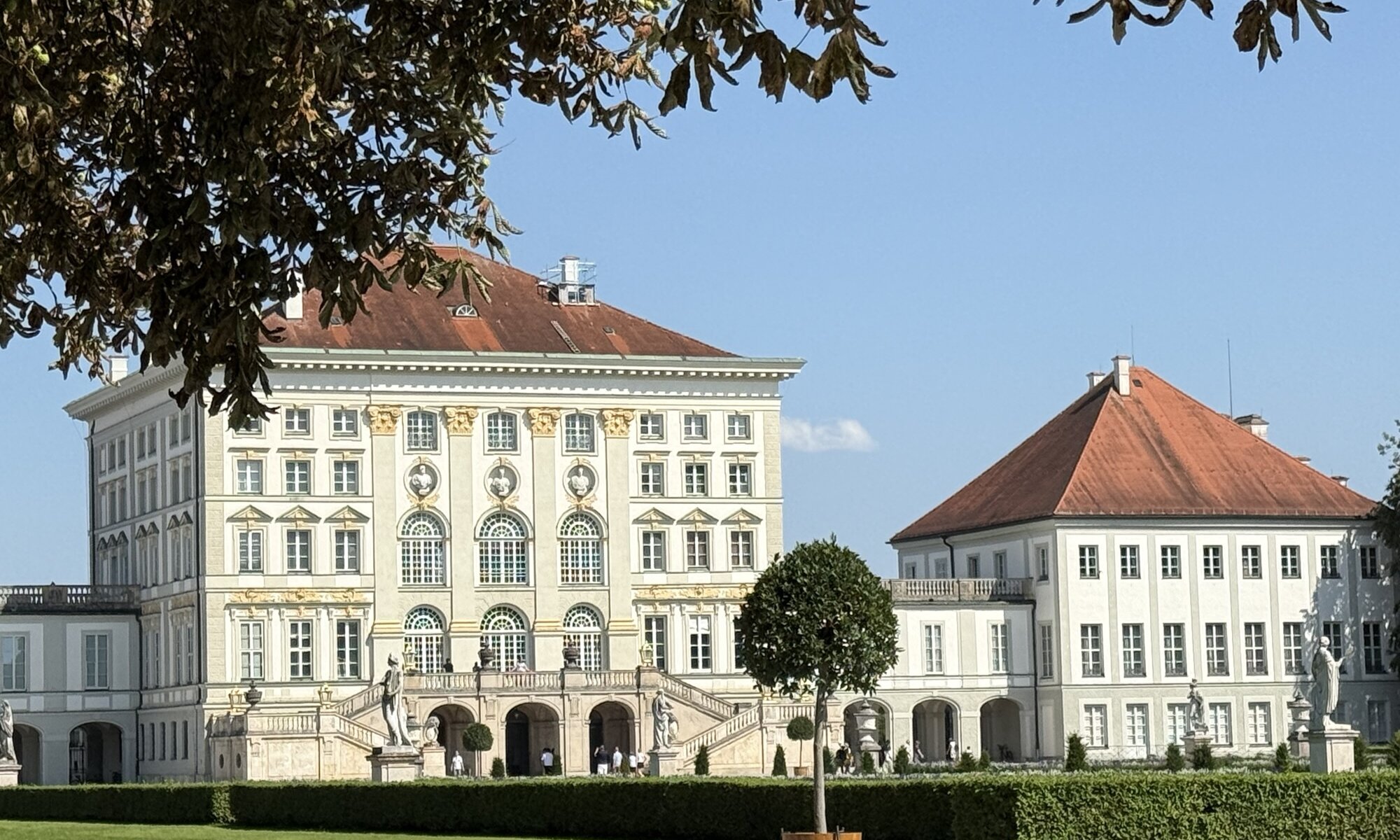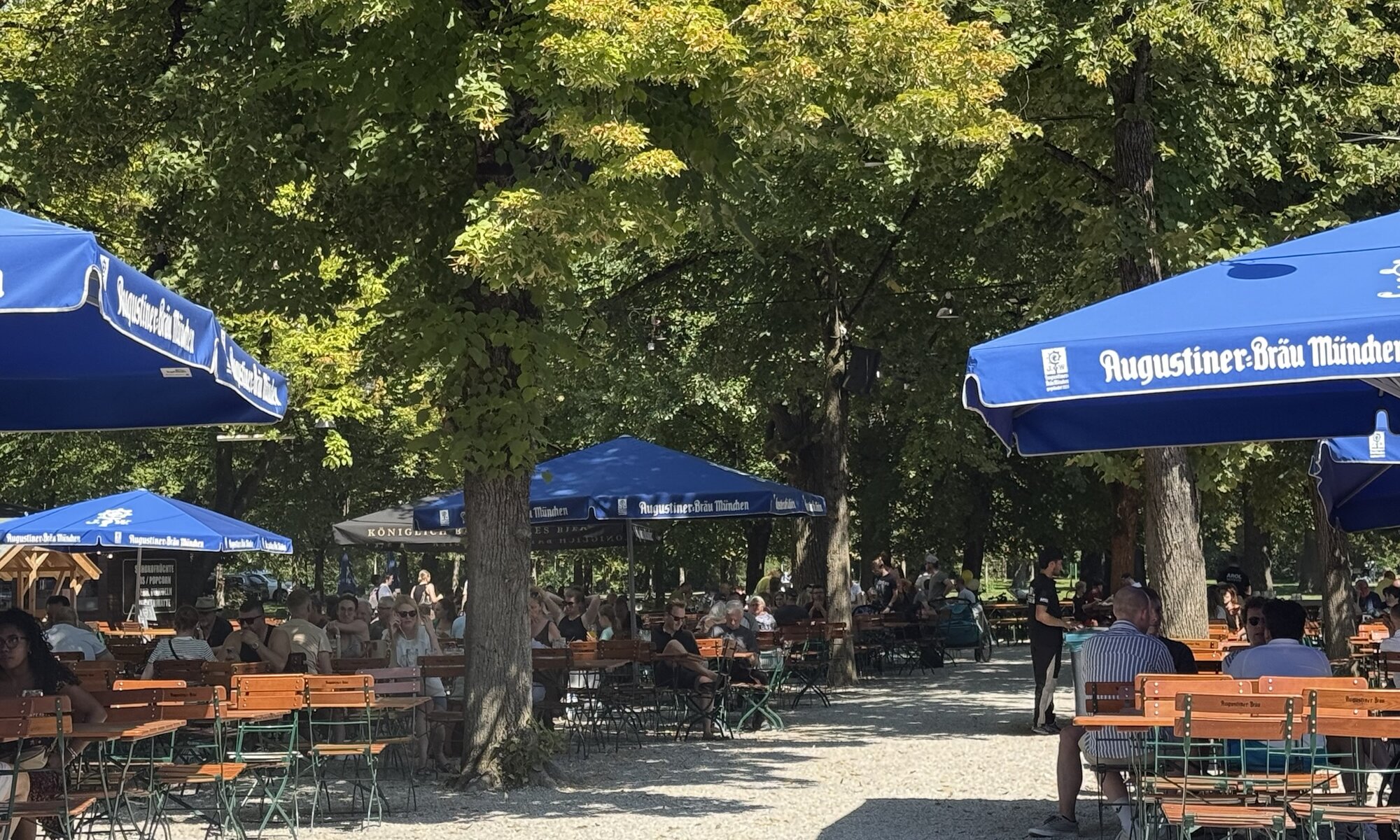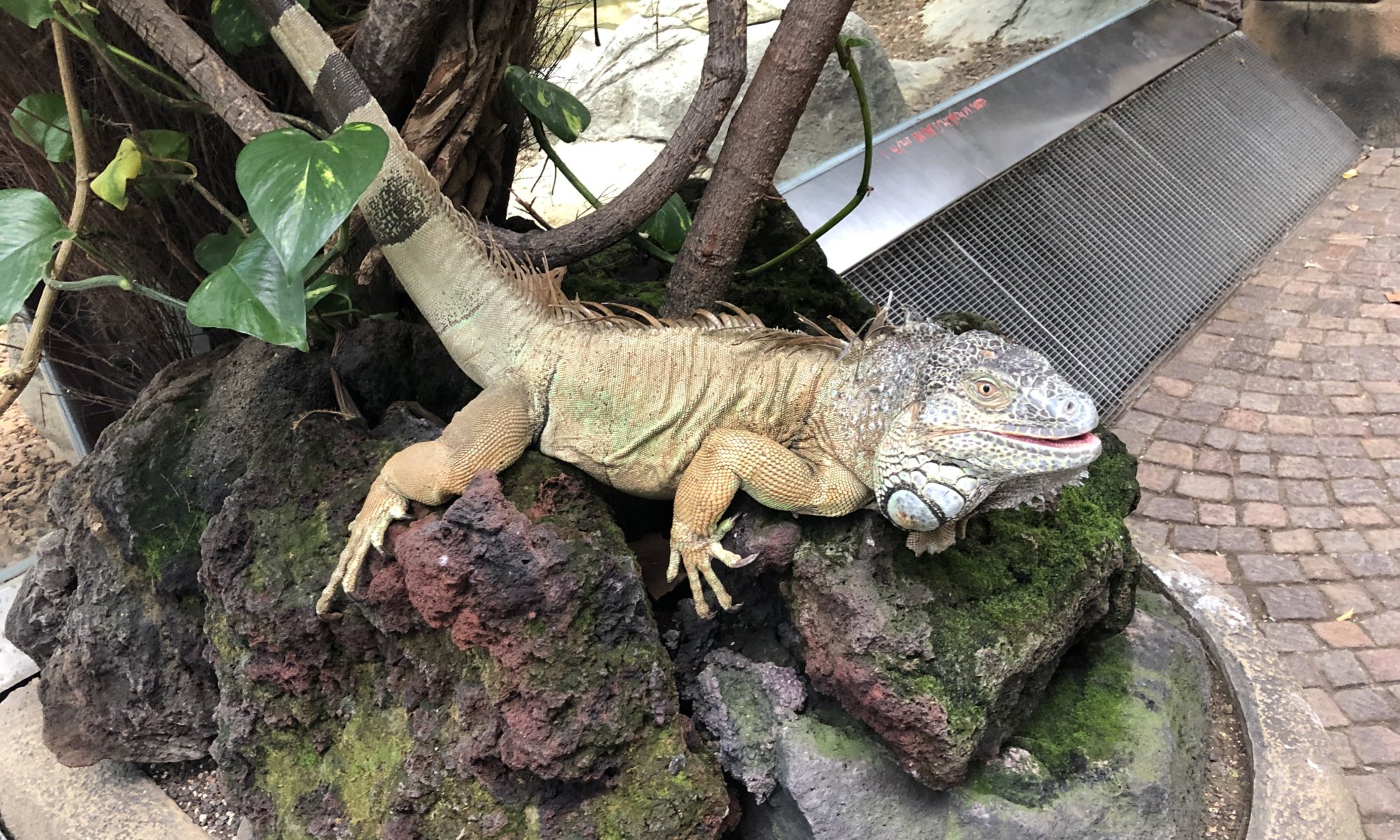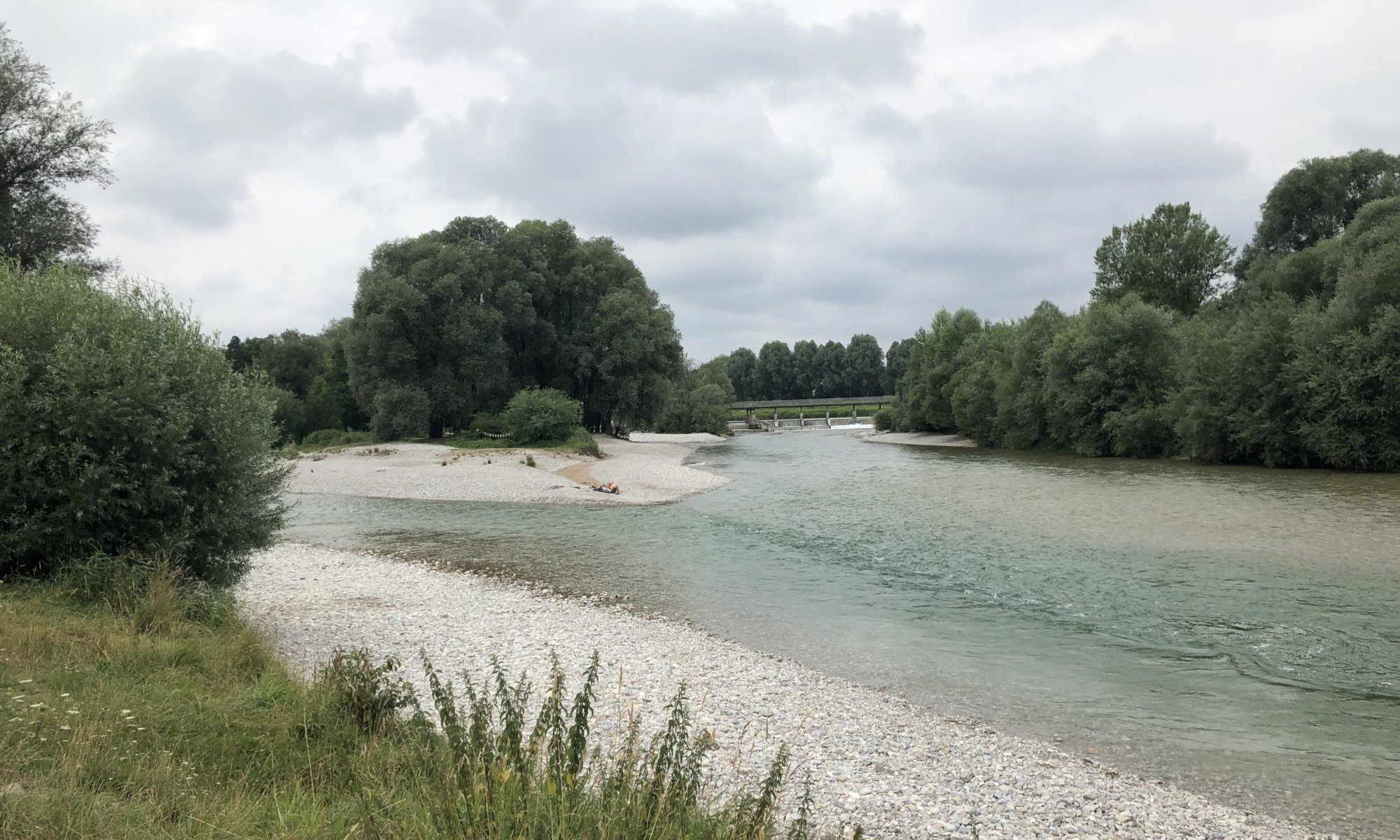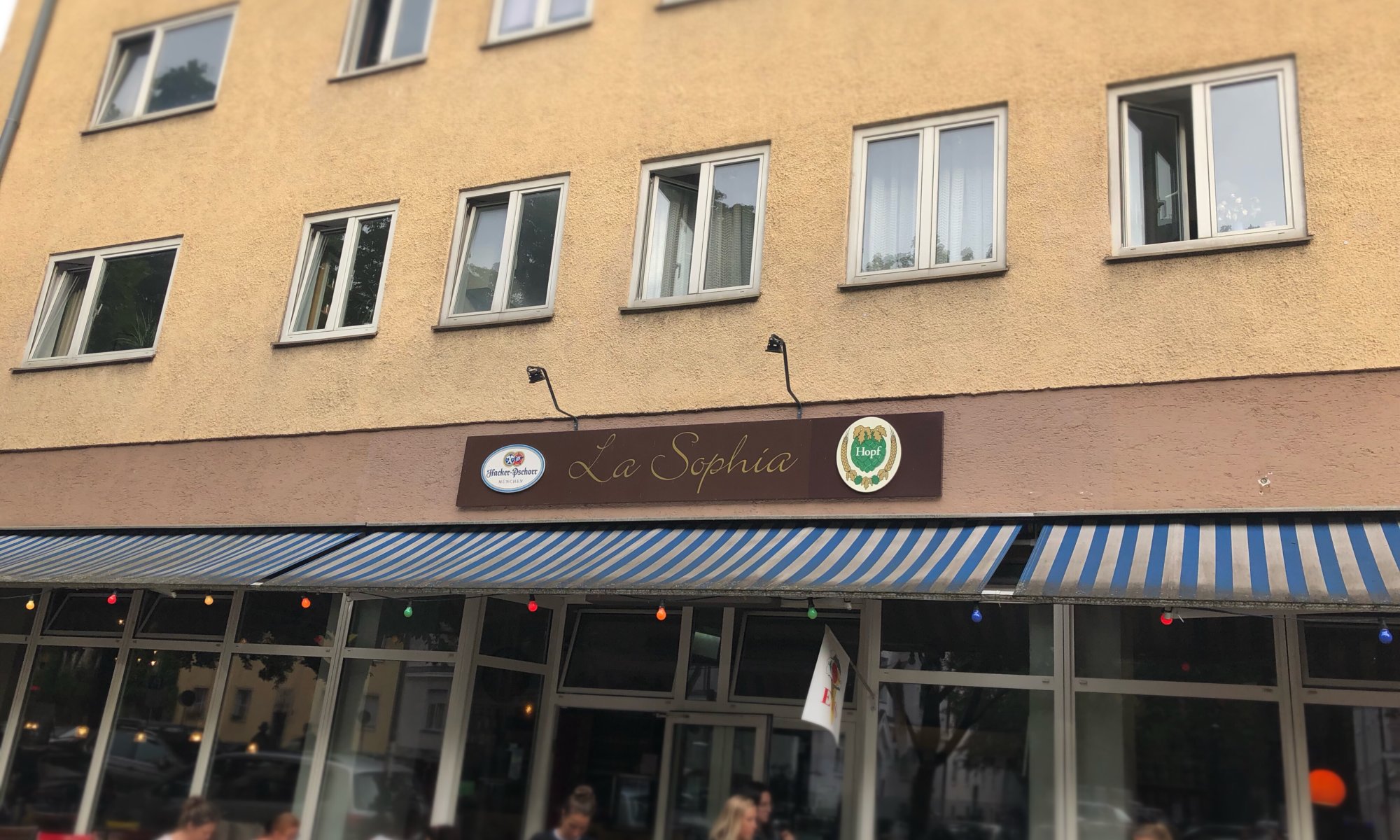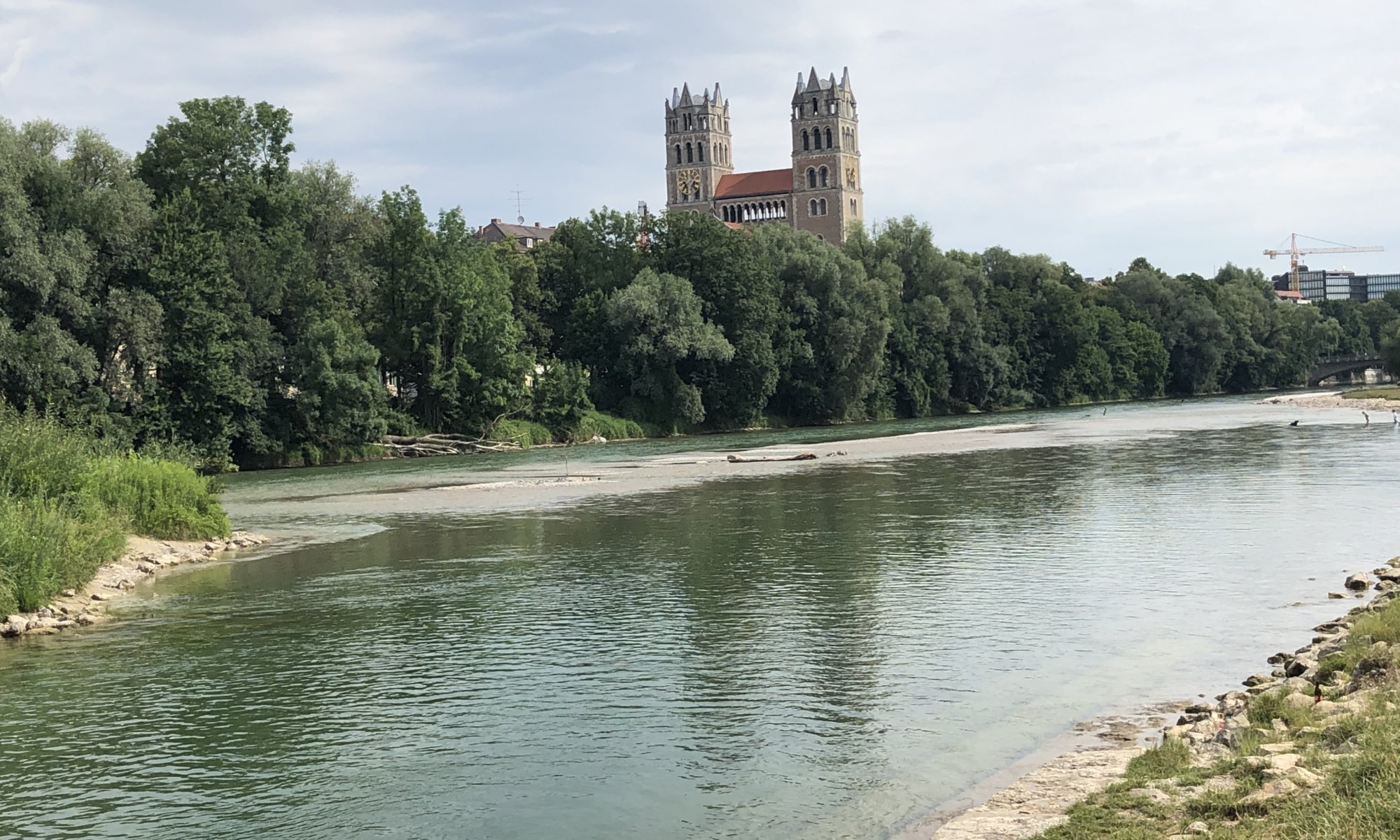The Ruhmeshalle in München stands as a grand neoclassical monument, overlooking the Theresienwiese from its elevated position on the western edge of the city centre. Designed by the renowned architect Leo von Klenze and commissioned by King Ludwig I of Bavaria, it was completed between 1843 and 1853. Its purpose was to serve as a hall of fame, celebrating figures who had made distinguished contributions to Bavarian culture, science, and public life. The open colonnade, built in the style of a Greek temple, forms a semi-circle that conveys both prestige and reverence, harmoniously blending with Münchens 19th-century architectural spirit.
Continue reading “Ruhmeshalle”Starkbierfest
Nestled on a gentle hill in the district of Au, the Nockherberg holds a special place in Münchens cultural and brewing history. It is best known as the home of the Paulaner Brewery, which has stood here since the seventeenth century. The origin of Nockherberg’s fame dates back to 1634, when monks of the Neudeck ob der Au monastery first brewed a dark, strong beer known as Salvator to sustain themselves during Lent. This hearty beverage quickly gained popularity, becoming not only a symbol of local craftsmanship but also an inseparable part of Münchens identity. Over time, the hillside location transformed from a monastic retreat into a vibrant site for one of Bavaria’s most beloved beer traditions.
Continue reading “Starkbierfest”Lenbachhaus
Located in the vibrant heart of München, the Lenbachhaus is a true gem for anyone with an appreciation for art and history. Originally, the building was the villa of Franz von Lenbach, a prominent 19th-century painter, who designed his home in a Tuscan style reminiscent of Italian Renaissance villas. In the early 20th century, the city of München acquired the property and transformed it into a museum, aiming to preserve and showcase Lenbach’s legacy and the city’s rich artistic heritage. Over the years, the Lenbachhaus underwent several expansions and updates, allowing it to evolve into one of Germany’s most esteemed art institutions.
Continue reading “Lenbachhaus”Green oasis
The Botanischer Garten Nymphenburg in München, nestled adjacent to the famed Schloß Nymphenburg, is a serene oasis with a rich legacy dating back to the early 20th century. Originally founded in its current location in 1914, the botanical garden replaced the city’s older botanical garden near Karlsplatz. Its development was strongly shaped by a desire to create a thriving centre of horticultural education and research, one that would also serve the public as a place for enjoyment and tranquillity.
Continue reading “Green oasis”Nymphenburg
On the western edge of München you can find Schloß Nymphenburg, a splendid testament to Baroque architecture and the grandeur of Bavaria’s royal past. The palace was commissioned in 1664 by Elector Ferdinand Maria and his wife Henriette Adelaide of Savoy, in celebration of the birth of their son, Max Emanuel. Initially conceived as a summer residence, it began as a modest cubic pavilion surrounded by gardens and auxiliary buildings, but over centuries expanded into a lavish complex under successive members of the Wittelsbach dynasty. The palace’s transformation mirrored the dynasty’s aspirations: its façade, gardens, and interiors were continually embellished, culminating in a breathtaking ensemble of halls, museums, and parkland.
Continue reading “Nymphenburg”Hirschgarten
The Biergarten in the Hirschgarten is truly a quintessential München experience, blending tradition, nature, and conviviality. Hirschgarten itself claims the title of the largest beer garden in the world, with thousands of seats beneath sprawling chestnut trees. As you settle in with a stein of locally brewed beer, the air hums with the lively chatter of locals and travellers alike. It is a place where families, friends, and solo explorers can relax, share laughter, and enjoy the simple pleasures of a sunny afternoon or a warm summer evening.
Continue reading “Hirschgarten”Hellabrunn
The Münchner Tierpark Hellabrunn is the zoological garden of München, Germany. It was opened in 1911 and you can visit 18500 animals of more than 700 species. It is located at Giesing-Harlaching close to the wetlands of the river Isar, the Flauchersteg and the Flaucher. It is financed by the city of München as well as many private donors and participates in 38 wildlife conservation programs.
Continue reading “Hellabrunn”Flaucher
The Flaucher is a section of the river Isar close to the city center of München, Germany and the Tierpark Hellabrunn. There the river spreads into different arms creating various river islands. It is an area that is used for recreation, for swimming and to have barbecues. In summer it gets pretty crowded but if you’re lucky you can find your own semi-private section here between trees.
Continue reading “Flaucher”La Sophia
The La Sophia is a family-friendly Italian restaurant in the city quarter Au of München, Germany. It is located between the river Isar and the Nockherberg and they serve the typical pizza and pasta dishes. At the restaurant you’ll find all you need for a relaxed visit with children – including a nice play area inside.
Continue reading “La Sophia”Isar
It’s no secret that along the river Isar at München, Germany you can find the best places to relax. Close to the Baldeplatz there are nice green areas to sit close to the water, to walk through the shallow parts of the river or to enjoy the faster flow around the Weideninsel (willow island) within the river.
Continue reading “Isar”